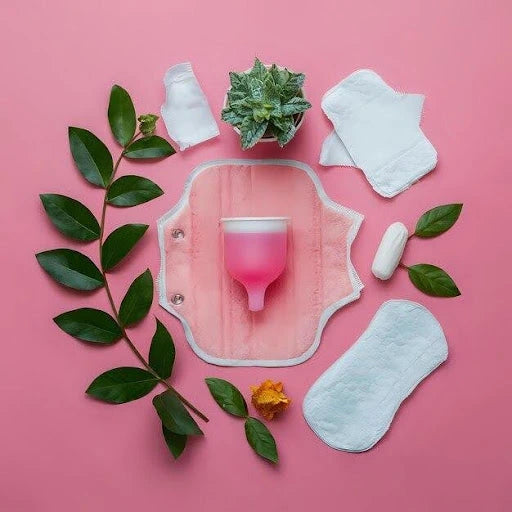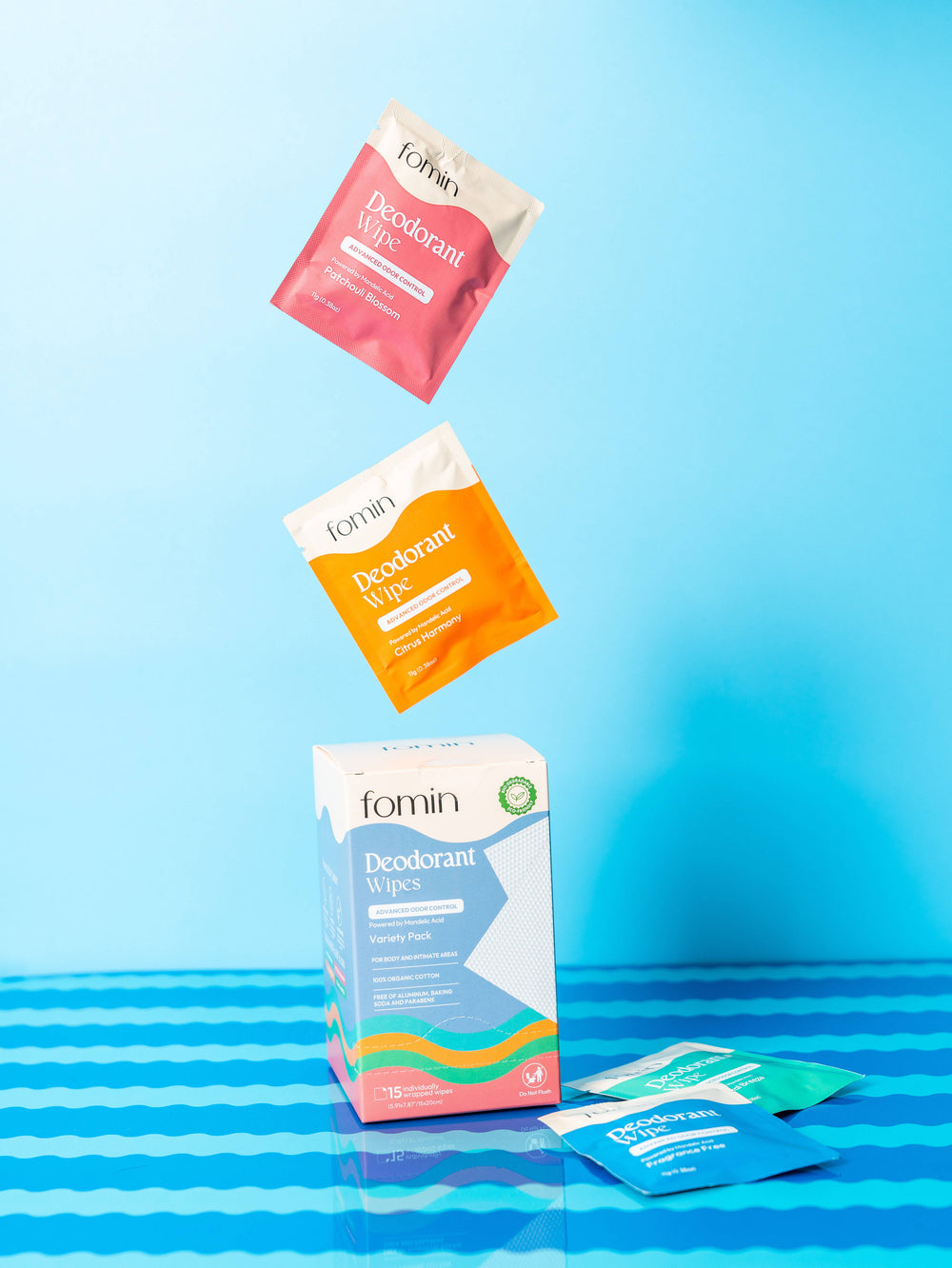
Why Should You Ditch Plastic in Your Feminine Hygiene Routine?
Share
The significance of reducing plastic and promoting sustainability is more important than ever. Especially, when it comes to feminine hygiene products, the heavy use of plastics has been largely overlooked. Countless studies emphasize the harms of plastic presence in feminine hygiene products, so ditching plastic can positively impact both the environment and your health.
In this article, we will see how eco-friendly period products are important to include in personal care routine.
The Environmental Impact of Plastic in Feminine Hygiene Products
Plastic is present in one form or another in pads, liners, and tampons. For example, tampons come with plastic applicators, while sanitary pads and liners are in plastic packaging. They carry the adhesives and plastic fibers within the absorbent core.
The shocking fact is that a regular sanitary pad contains as much plastic as 4 plastic bags. So, you can imagine when a woman uses an average of 15 such pads each month for years, how staggering the toll would be on the environment. So, plastic-free feminine hygiene products become the need of time in the wake of the many environmental issues associated with plastic.
Long-Lasting Pollution
The most concerning matter is that the plastic used in feminine hygiene products is not biodegradable. So, even after millions or billions of years, these products remain undecomposable. So, though these plastic products integrate with time, they will remain in some form- whether in landfills or as microplastics in the ocean.
Contribution to Microplastic Pollution
The biggest problem arises when this plastic enters our oceans. You will be astounded by the amount of plastic in oceans. It disintegrates in the form of microplastic and is impossible to filter out of our water system. These particles have been found in drinking water, oceans, and even the air, posing long-term threats to ecosystems and human health. By turning to eco-friendly period products, you can reduce the amount of microplastics entering our environment.
Health Risks Associated with Plastics in Feminine Hygiene Products
Aside from numerous environmental concerns, potential health risks need to be considered too. Most traditional hygiene products contain chemicals, and synthetic materials to enhance absorbency, fragrance, and durability. These chemicals can cause various forms of allergies and infections. One such common issue is yeast infection.
Sustainable and Health-Conscious Alternatives
Now that we know the need for sustainable feminine hygiene products, let’s see how they can help you achieve a plastic-free feminine hygiene routine.
-
Organic Cotton Pads and Tampons
Unlike traditional pads or feminine hygiene products, organic cotton pads, and tampons are free from plastic, chemicals, and synthetic fibers. Such Zero-waste feminine hygiene products are not just environment-friendly but also gentle on the skin. Be sure to look for certified organic options, as these ensure minimal environmental impact during production.
-
Menstrual Cups
These are a great zero-waste option made from medical-grade silicone, rubber, or latex. The manufacturing material is non-toxic and non-irritating. These cups are reusable for years and can greatly reduce waste compared to single-use pads and tampons.
Though it may take some time to get used to, many people find them comfortable, cost-saving, and effective in the long run.
-
Period Underwear
Period underwear is quite recent in the line of sustainable options for feminine hygiene products. Made with breathable, natural fabrics, these garments are washable and reusable, reducing your dependence on single-use items. They are a great option for light to moderate flow days.
-
Cloth Pads
Cloth pads are made from cotton or bamboo material that can be washed and reused. They come with adjustable snaps, so they stay in place without plastic adhesives. They are available in a variety of sizes and absorbencies. As they are free from chemicals they won’t cause any infection or allergies. The only downside is the wet feeling and the fear of stain.
How to Transition to a Plastic-Free Routine
Switching to plastic-free options might seem daunting at first, but with a few steps, you can build a sustainable feminine hygiene routine that’s easy to maintain.
-
Start Small
Begin by incorporating one or two reusable products, such as a menstrual cup or organic cotton pads, and gradually phase out single-use plastics.
-
Experiment with Different Products
Everyone’s body and needs are different, so don’t be afraid to try a few different plastic-free options to see what works best for you. Aside from period products, you can adopt other eco-conscious products like Fomin wipes in your hygiene routine.
-
Be Patient
Reusable options may take some adjustment, but once you’re used to them, they can be just as convenient as traditional products.
-
Dispose Responsibly
When you do use disposable products, make sure they’re biodegradable, and dispose of them in an eco-friendly way.
Final Thoughts
Switching to eco-friendly period products is a simple yet impactful way to contribute to environmental conservation. With so many high-quality, comfortable, and safe alternatives available, transitioning to a plastic-free routine has never been easier. By choosing reusable or biodegradable options, you’re not only reducing plastic waste but also making a positive choice for your body and the planet.
Building a Plastic-Free Future: Fomin's Commitment to Driving Sustainability
In an era where plastic pollution has become an alarming global issue, it is crucial to seek innovative solutions to reduce its devastating impact on our oceans and ecosystems.
Annually, an astounding 8 million metric tons of plastic waste goes into our oceans, endangering marine life and the sensitive equilibrium of biodiversity on Earth. Fomin, a pioneer in sustainable initiatives, has driven the movement toward a plastic-free planet.
By purchasing Fomin's eco-friendly cleaning products like dishwasher detergent tablet etc., you actively participate in the battle against plastic pollution. Join our loyalty program to participate in building a sustainable future - one where plastic is not a threat but a relic of the past.


